Jan Teplý
出生 : 1931-07-30, Prague, Czechoslovakia [now Czech Republic]
死亡 : 2007-02-25
略歴
Jan Teplý was a Czech film and television actor.

Sad love story about Martin, who is sent to a psychiatric hospital for observation after displays of hooliganism, and Markéta who is recovering from post-traumatic shock after her mother's suicide.
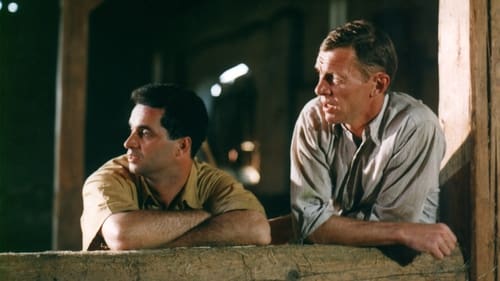
Hýbner

In post-WWII Communist Czechoslovakia, several characters considered bourgeois are sentenced to work in a junkyard for rehabilitation. Among them is a young man who pines for a female convict.

Hikl
The story takes place in the Czech-German border region in 1938. The hero Tomás Jakl marries but the marriage is not very lucky and falls apart. His German friend forced him to enter the Nazi party.

In the mid-eighties, screenwriter and director Jaroslav Balík tried to give voice to the problems of an ambitious young woman who decides to get back to work after a few years spent on maternity leave. NFA.CZ

Sedlacek
During the First World War, the crooks Scholef and Krumka sell weapons on the black market. After the collapse of the monarchy they try their hand at speculation on a grand scale.

Taxi driver Koukal (Miroslav Machácek) is stopped by the police for a routine traffic check. In the boot of his car the police find the body of a naked man. Koukal is arrested even though he claims he knows nothing about it. The case is assigned to Major Mlynár (Milan Sandhaus). The police identify the corpse as that of an Austrian citizen called Mitrik. Koukal has been regularly driving people interested in gambling to a secret gaming den. The police are put onto the gambling den by another taxi driver, who admits that he drove Mitrik there. Mlynár and officer cadet Pecka (Ivan Vyskocil) feign interest in gambling and visit the gaming den incognito.

The fisherman Fuksa fishes in the creek an old bottle and he sells it to innkeeper Merta. When Merta opens it, a genie appears, who can fulfill all his wishes.

1st Man

(segment "Téma: Láska")
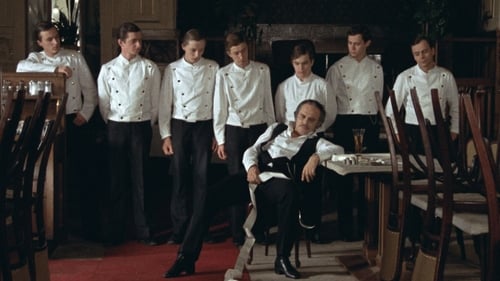
Set in the early 1930s, a young man finds a job as a dishwasher in a hotel and quickly works his way up the ladder. Loosely based on the novel by Henryk Worcell.

poručík VB
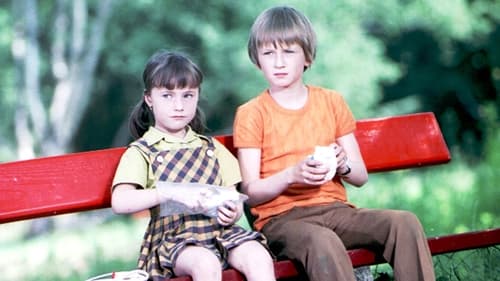
On the holidays, ten years old Adam and his little sister Otka, four years junior to him, travel from a village Vykán to their aunt to Prague. Their parents left for Hungary to the world championship in ploughing. The children have the address but they do not know the way to the Northern Town. They set out for a place on foot, across the historical parts of the town.

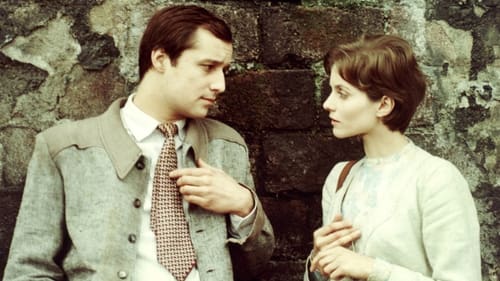
Young Man
It is the summer of 1945. A party of young people are enjoying the beginning of a new life to the full. For them this is the year one. One of them, law student Pavel, is more attracted to film than to law. With his eight-millimeter camera, he films everything that catches his attention. One day he captures an interesting face on film, a girl with an air of mystery. Pavel visits the girl, whose name is Helena, and meets hers and her elder energetic sister Olga. From Olga, he learns that the girls have spent the years of German occupation in a concentration camp and cannot forget the horrors they have lived through.
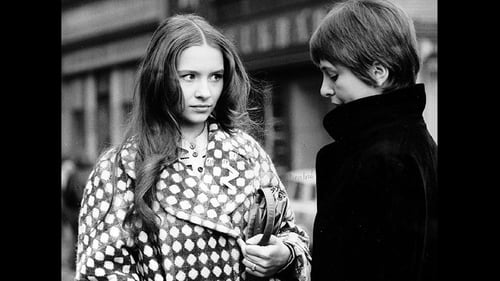
Nadstrázmistr VB
Lieutenant VB, disguised as a laborer, is looking for a young woman killer among the staff of a wheel loader. But which of the possible motives found is the right one?

Sixteen-year-old students of a grammar school are supposed to write essays on "Love". The class best student Andrea (Jaroslava Schallerová) writes about a patriotic love to a country as she has no experience with a partner love. She has been living alone with her divorced pretty mother Eva (Milena Dvorská), a dentist, for many years. Recently, however, Eva met her former school-days love at a graduates' party, nowadays a famous hockey goalkeeper Brukner (Frantisek Velecký). Also his marriage fell apart; he leaves the national team and decides to leave Prague for his home town and to share flat with Eva. He takes with him his son Petr (Oldrich Kaiser), in Andrea's age, who gets his last chance to finish a grammar school in the town.
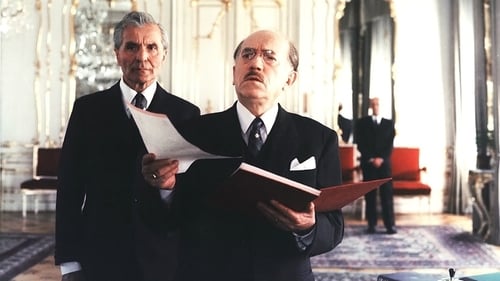
This feature film based on the events of 1938 is a chronicle of the futile efforts of the Czechoslovak president Edvard Benes (Jirí Pleskot), politicians and ordinary citizens, to save the independence and the territorial integrity of the state from the advance of Hitler's Germany. On the 29th of March 1938 the leader of the Sudeten Germans Henlein (Werner Ehrlicher) has a meeting with Hitler (Gunnar Möller). Hitler orders him to intensify pressure on the Czechoslovak government. On the 24th of April in Carlsbad, the Sudetendeutsche Partei (Sudeten German Party) decides upon eight demands that are unacceptable to the Czechoslovak President, since they would ultimately lead to the break-up of the Republic. Benes still shows a certain willingness to negotiate, and Henlein resents this. The Germans are determined to make further negotiations impossible through incidents and violence.

Screenplay
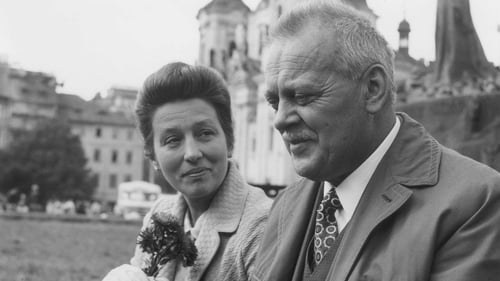
Jaroslav

Marek (Jirí Holý), formerly a driver of a long-distance lorry, has served his term for smuggling art works abroad and is released from jail. Years ago, he sacrificed himself and confessed his guilt on behalf of his companions - the drivers Krása, Jelínek, Hess and Novák from the Ministry of Culture who gave them tips. Marek finds Hess and tells him that now he expects the gang to compensate him for the wasted years of his life.


The female employees of the poultry-processing factory find relief from their monotonous work in chatting about weddings and marriages. The very young Zdena (Marta Vancurová), too, dreams about a white veil and an entourage of bridesmaids. On her return home from work, she runs into a peculiar man on an abandoned road who pertinaciously offers to read her palm for a few crowns to buy soup. His augury is rather usual - wealth and poverty, suffering and happiness. Then however, he declares that Zdena must marry exactly on 3 November of that year otherwise she will be unhappy.
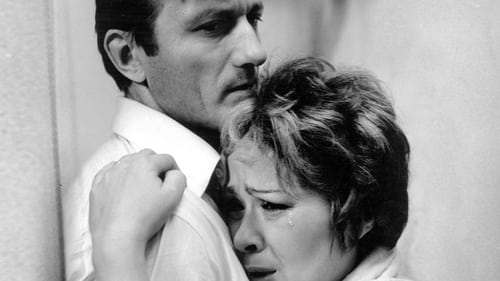
Senior ministry official Ludvik and his wife Anna come back from an official party only to find their home has been broken into and is riddled with listening devices. A harrowing night follows as the couple becomes more and more paranoid that they’re being targeted by the government.
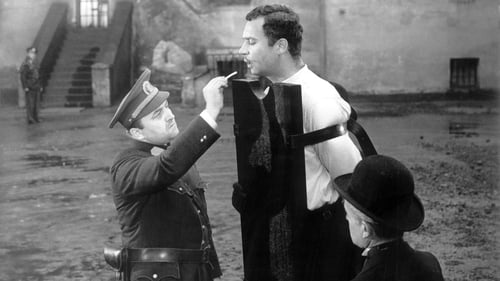
A dark comedy about a murder and its consequences presented in a backwards manner, where death is actually a rebirth. The film starts with an "execution" of the main protagonist and goes back to explore his previous actions and motivations.

Walstone
The Stolen Airship (Czech: Ukradená vzducholod) is a 1967 live-action/animated film by Czech filmmaker Karel Zeman. The story is based loosely on Jules Verne's novels Two Years' Vacation and The Mysterious Island. The film in Art Nouveau style consists of live-action scenes, generally shot in black and white, as well as hand-drawn, stop motion, and cutout animation. Various live-action and animated elements are often composited into the same scene.

















